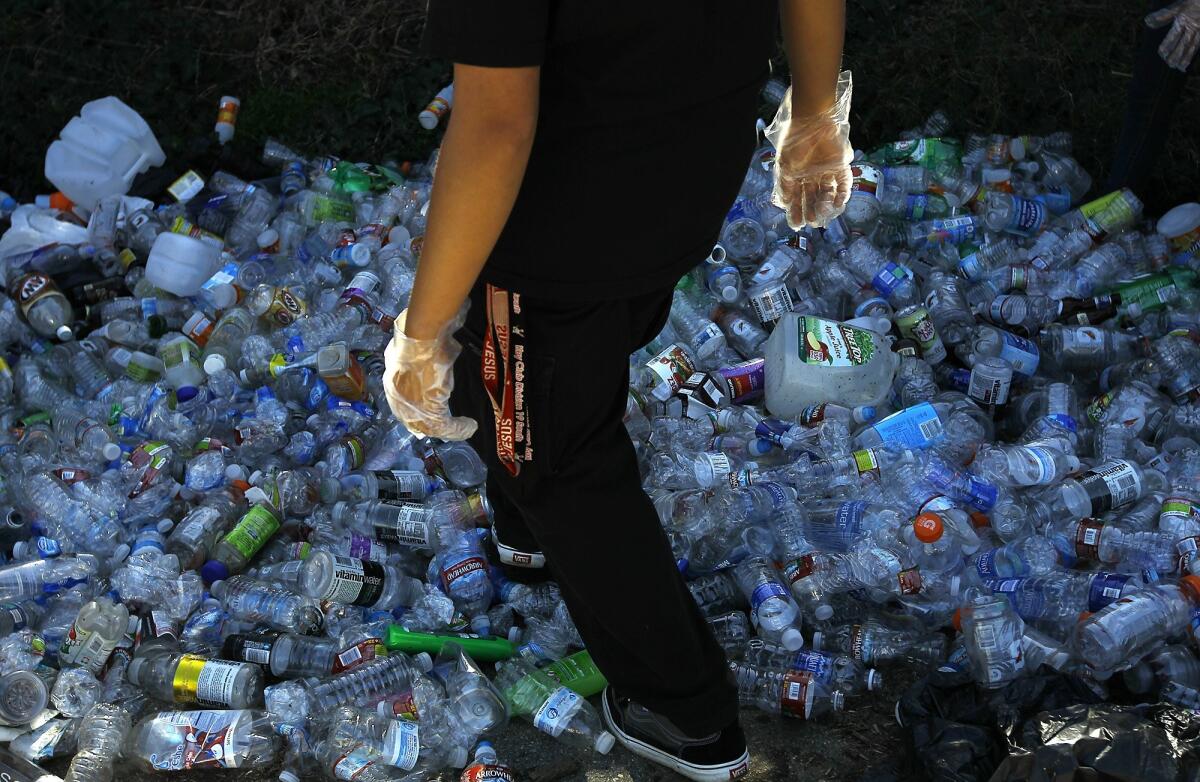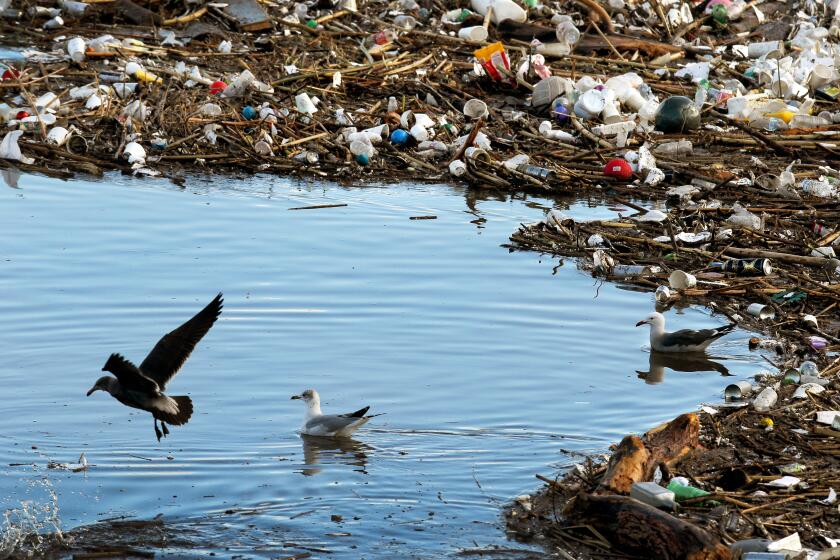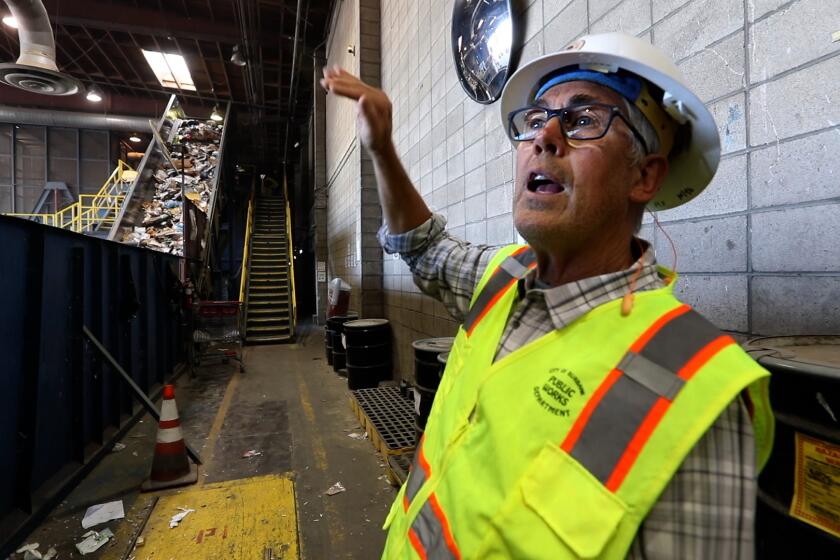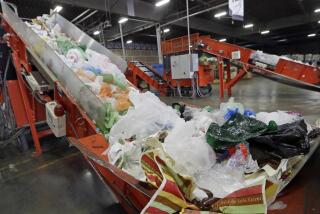L.A. County restricts single-use plastics for unincorporated areas, effective 2023

- Share via
Los Angeles County on Tuesday became the largest government entity to restrict single-use plastic food ware items from restaurants, stores, hospital cafeterias and food trucks.
County supervisors finalized an ordinance that will require single-use food ware to be compostable or recyclable, unless it’s a full-service, dine-in eatery, in which case it needs to be reusable. The ordinance, which applies only to the unincorporated areas of the county, also bans expanded polystyrene products such as coolers, plates and cups.
“Today’s action is a major step forward in reducing our reliance on plastics and reducing its harm to human and marine health,” L.A. County Supervisor Sheila Kuehl said in a statement. “It’s time we put a fork in our use of plastics and took a bite out of the overwhelming amount of plastic county residents needlessly use.”
Roughly 1 million people live in the unincorporated parts of L.A. County, and there are several thousand restaurants and food service establishments, said Gary Gero, the county’s chief sustainability officer.
The ordinance won’t take effect until May 1, 2023, for food facilities operating in a permanent location, and Nov. 1, 2023, for food trucks. For farmers markets, catering companies and temporary food facilities, the ordinance won’t go into effect until May 1, 2024.
Violators will be fined up to $100 per day, to a maximum of $1,000 per year.
In the meantime, the county will begin a yearlong outreach and education campaign to help restaurants and businesses adjust to the changes.
Environmentalists and industry are at odds over a November ballot initiative that would reduce single-use plastics and polystyrene food containers.
The city of Los Angeles is also moving on this front. A finalized report on how the city can eliminate single-use plastics is expected this month from the city’s sanitation department, L.A. Sanitation & Environment.
Gero said the ordinance came as a result of China’s decision to stop accepting recyclable plastics in 2017, under its National Sword policy.
“Instead of getting paid for their materials, we were actually paying people to go put them in landfills,” he said, noting that other local governments were similar affected.
Dealing with the waste was not only expensive, but “it really pointed out the whole notion of recycling was kind of a broken system to begin with,” Gero added.
Environmental groups across the state and nation are hailing the ordinance.
“Ultimately local governments like L.A. have to bear the real costs of dealing with this material ... so it makes sense that they lead on policies like these,” said Nick Lapis, advocacy director for Californians Against Waste.
Jay Ziegler, at the Nature Conservancy’s Director of Policy and External Affairs for California, said it was the “most significant county effort to date.”
The ordinance does have detractors. The American Chemical Council, the California Restaurant Assn. and the California Chamber of Commerce all opposed it. The Times was unable to immediately reach any of these organizations for comment.
California’s recycling industry has struggled since China banned imports of plastics and other material. Experts say changes are vital to overcome a waste glut.
Other California counties, including San Mateo and Marin, have passed similar plastics ordinances. However, the Los Angeles law will have the broadest population reach, and is likely to help fuel ordinances in other local governments and legislation at the state level.
This is a “critical step today to protect communities and the ocean from plastic pollution,” said Christy Leavitt, director of Oceana’s plastics campaign. “The reality is that counties and cities are leading the way. It’s time for statewide action.”
As of March 16, there were 150 local plastics ordinances in California, according to Craig Cadwallader, the Surfrider Foundation’s South Bay policy coordinator. He said they include simple bans on expanded polystyrene to ones passed in L.A., Marin and San Mateo counties that also ban plastic utensils and other food ware that is not reusable or biodegradable.
Cadwallader said that plastics ordinances have been implemented in 136 California cities and towns, affecting 14 million people.
“This is a huge achievement,” said Gero, the county’s sustainability officer. “The county on its own is not going to solve these problems ... but when the county acts, that means the ideas are ready to spread.”









